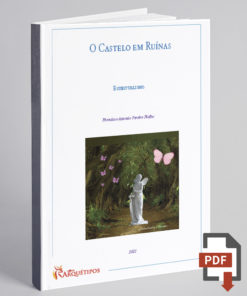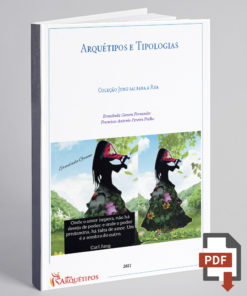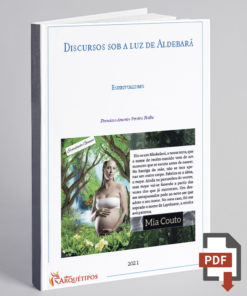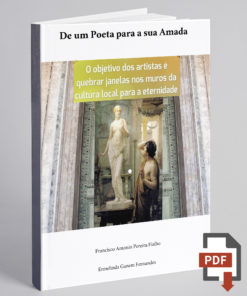The book is structured into 13 carefully organized chapters to offer a complete and integrated view of the topic:
PART I: FUNDAMENTALS AND TECHNOLOGIES
Chapter 1: “A Perfect Match: Technological Convergence to Leverage the Monetization of the Metaverse “ (Renato Salvador Coutinho, Ricardo Pereira, Suelen Jorge Felizatto Marostica, Neri dos Santos): This chapter analyzes the potential of blockchain technology as a basis for metaverse monetization, exploring the synergies between these technologies and the opportunities to ensure the financial viability and persistence of the virtual environment.
Chapter 2: “The use of NFT digital assets as marketing strategies “(Marcio Rodolfo Paasch, Moisés da Silva e Silva): Addressing Web 3.0 and the metaverse, this chapter highlights the role of NFTs as a tool for co-creation between users and companies, exploring the possibilities of monetization and developing marketing strategies in this new scenario.
Chapter 3: “Artificial Intelligence and the Metaverse: An Integrative Review” (Alexandre Cavalhero, Ricardo Pereira, Lia Caetano Bastos, Neri dos Santos): This chapter examines the fundamental relationship
between artificial intelligence, especially generative AIs, and the operationalization of the metaverse, exploring how AI contributes to creating immersive, interactive, and personalized virtual environments.
Chapter 4: “Metaverse: Platforms, Technologies, and Applications” (Dalner Barbi, Robson Fernando Duda, Ranieri Alves dos Santos, Fernando Ostuni Gauthier): This chapter discusses the importance of
evaluating metaverse platforms, analyzing the criteria and methodologies used to assess the characteristics, usability, community engagement, and technological integration of these platforms.
PART II: IMPACT AND CHALLENGES
Chapter 5: “Copyright in the Metaverse: Challenges and Adaptations in the Era of Disruptive Technology” (Thiago Domingos Marques, Rodrigo Boeing Althof): This chapter addresses emerging challenges related to copyright in the metaverse, analyzing how disruptive technologies like blockchain and virtual reality redefine traditional concepts of intellectual property.
Chapter 6: “Metaverse as a tool for teaching fashion design “ (Letícia Ayumi Sato, Letícia Cunico): This chapter explores the potential of the metaverse as a tool for teaching fashion design, using a gamified
approach and Design Thinking to create a prototype virtual tool that facilitates learning about the history of fashion.
Chapter 7: “ Teacher training for Metaverse usage: Challenges and Opportunities found through an Integrative Review “ (Melise Peruchini, Ingrid Weingärtner Reis, Vania Ribas Ulbricht, Júlio Monteiro Teixeira): This chapter addresses the challenges and opportunities of training teachers to use immersive technologies in education, highlighting the need to rethink training strategies and the importance of integrating technology from the curriculum planning stage.
PART III: THE METAVERSE IN EDUCATION
Chapter 8: “ Metaverse and Education: Building Paths “ (Julius Diego de France Santos, Mauricio Henning, Vinicius Faria Culmant Ramos, Giovani Gracioli): This chapter investigates the potential of the metaverse for education, analyzing its contributions, challenges, and applicability in this context, and exploring different approaches and solutions for using the metaverse in teaching.
Chapter 9: “Pedagogical Practices in Early Childhood and Elementary Education: Integrating the Metaverse into the School Curriculum as a Connection Between Theory and Practice “(Cristiane Bonatti, Douglas Ropelato, Edesio Marcos Slomp, Vania Ribas Ulbricht, Maria José Baldessar): This chapter presents a case study that explores the implementation of the metaverse in the school curriculum for early childhood
and elementary education, analyzing the benefits for learning and the challenges of integrating technology into teaching practice.
Chapter 10: “Immersive Technologies in Education: Trends and Challenges for Contextualized Learning” (Ingrid Weingärtner Reis, Ivam Galvão Filho, Vania Ribas Ulbricht): This chapter analyzes trends and
challenges for the use of immersive technologies, such as virtual reality and the metaverse, in education, highlighting the importance of contextualized learning and the need to meaningfully integrate technology at all stages of the educational process.
Chapter 11: “ Potentials of the Metaverse to Facilitate Organizational Learning “ (Thaís Regina Umbelino, Ana Ester da Costa, Gladys Milenna Prado): This chapter explores the potential of the metaverse to facilitate organizational learning processes, analyzing how the immersive virtual environment can contribute to creating collaborative spaces, sharing knowledge, and conducting innovative training.
Chapter 12: “ Results and Prospects for the Future of Education Using The Metaverse “ (Francisco Rogério de Carvalho, Carlos Alberto Muniz, Suelen Lazaretti, Neri dos Santos, Edis Mafra Lapolli, Francisco Antônio Pereira Fialho): This chapter presents a comprehensive analysis of the use of the metaverse in education, using mixed research methods, including an integrative literature review, metadata analysis, and case
studies, to map the evolution of research, the results of experiences with the metaverse in education, and future perspectives for this area.
Chapter 13: “ Implications of the Metaverse in the Training and Development of Individuals and Organizations” (Ana Ester da Costa, Thaís Regina Umbelino): This chapter discusses the implications of the
metaverse for the training and development of people in organizations, exploring the benefits and challenges of using these technologies for individual and organizational development, including ethical and privacy issues.
“IMMERSING IN THE METAVERSE: Theoretical and Practical Reflections” is an essential work for professionals in various fields, including educators, designers, developers, entrepreneurs, and managers, who wish to understand the opportunities and challenges of the metaverse and prepare for the future.
This book invites the reader on an immersive journey into the metaverse, providing a solid foundation to navigate this new world and build a more connected, innovative, and promising future.





Avaliações
Não há avaliações ainda.